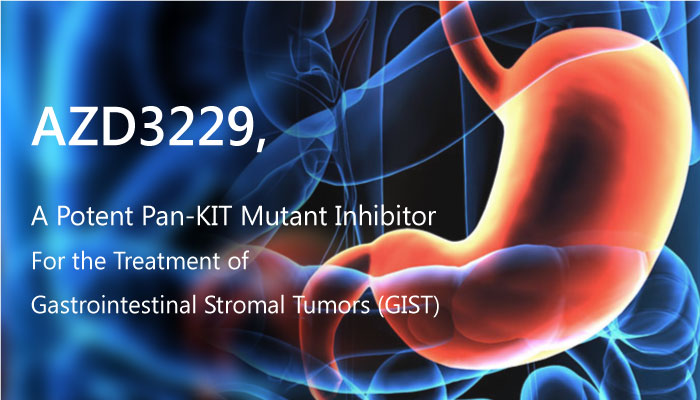Gastrointestinal stromal tumors (GISTs) are the most common mesenchymal neoplasms of the gastrointestinal tract. While the application of targeted tyrosine kinase inhibitors has revolutionized the treatment of gastrointestinal stromal tumors (GISTs). The targeted tyrosine kinase inhibitors inhibit KIT-driven proliferation, diverse mutations to this kinase drive resistance to established therapies.
c-Kit (Mast/stem cell growth factor receptor, SCFR or CD117) is a vital receptor tyrosine kinase. The kinase is a protein that in humans is encoded by the KIT gene. Furthermore, it is an important cell surface marker used to identify certain types of hematopoietic (blood) progenitors in the bone marrow. Not only that, it also has been used as a target for cancer therapy. Additionally, the therapy method for treatment of cancers by inhibiting c-Kit has been observed in some cancers especially in gastrointestinal stromal tumor, acute myeloid leukemia.

A study from Jason G. Kettle, et al. has identified a pan-kit mutant inhibitor AZD3229. AZD3229 is a potent, pan-KIT mutant inhibitor. Notiably, it shows potent single digit nM growth inhibition against a diverse panel of mutant KIT driven Ba/F3 cell lines (GI50=1-50 nM). And the inhibitor demonstrates potent single digit nM growth inhibition across a broad cell panel, with good margin to KDR-driven effects. In addition, this compound shows excellent cross-species pharmacokinetics, strong pharmacodynamic inhibition of target. In vivo models of GIST, the inhibitor also demonstrates excellent activity.
This novel inhibitor has not entered into clinical trials. However, due to its high anti-tumor activity, it must be in the process. As an promising candidate, AZD3229 is hopeful to become a potential GISTs drug.